| For those fearing lockdown more than government mismanagement of the pandemic, July 4th is England’s Independence Day. (Apart from Leicester, where restrictions have been tightened due to a sudden surge in coronavirus cases.) If the response to the reopening of inessential shops is anything to go by, a mass of masked and unmasked people will flock to pubs, restaurants and hairdressers, but I won’t be among them. The former would never have been a priority, but I’ve hesitated over the third: I’m fond of my hairdresser, I’ve missed her through three missed appointments, but I’ve grown surprisingly attached to my lockdown hair. |
Welcome
I started this blog in 2013 to share my reflections on reading, writing and psychology, along with my journey to become a published novelist. I soon graduated to about twenty book reviews a month and a weekly 99-word story. Ten years later, I've transferred my writing / publication updates to my new website but will continue here with occasional reviews and flash fiction pieces, and maybe the odd personal post.
|
12 Comments
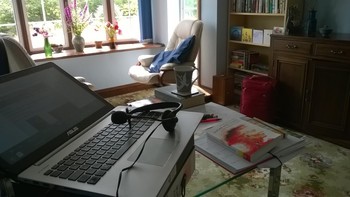 Although, like many writers, I find autumn to be the best time to tackle major writing projects, I’ve never yet been tempted to register for National Novel Writing Month. For me, the pace is too fast and the outcome too limited, but there’s nothing to stop me joining in informally, which is what I decided to try two years ago. Starting with three character sketches and a rough idea of the main plot points, I averaged a thousand words a day from the beginning of November onwards and surprised myself with a rough first draft of just under 80,000 words by the middle of January.
I’m sitting on Isabel Costello’s literary sofa today, sharing my experience of being published by a small independent press. So who better to keep my seat warm while I’m away than Teika Bellamy, writer, artist, publisher and founder of another small press, Mother’s Milk Books? Over to you, Teika. 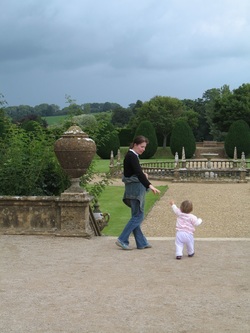 When I became a mother to my firstborn eight years ago, I found it to be a joyful, yet overwhelming time. I was inundated with conflicting advice from health professionals and received very few words of support. I can still clearly remember the sharp reply I received when I asked a nurse for a glass of water: ‘You’ve got a new baby now. You’d better get up and start looking after yourself.’ So I struggled out of bed with my newborn and, weak due to the post-partum haemorrhage and perineal tearing I’d just suffered with, I shuffled down the corridor and somehow managed to extract a cup’s worth of water out of the water cooler. (A difficult task when it requires two hands, you’re holding a baby and it feels like your groin might fall out of your body at any moment!) 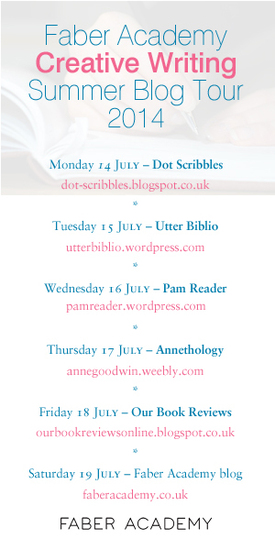 Early last week, I was contacted by Emily Furniss, who was the publicist for Roopa Farooki's novel, The Good Children, which sparked a lively discussion here on Annecdotal about obedience. Emily invited me to host a post on writing tips as part of a blog tour she was arranging. Of course I was game; I'd enjoyed hosting Janet Watson writing about her memoir and Tom Vowler's Laws for a Literary Life. The blog tour is an excellent way of discovering new blogs and, because I've got some nominations languishing in the virtual cupboard waiting to be appropriately dispensed, I'm awarding each of the four non-commercial blogs partaking in this tour the honourable title of Versatile Blogger. (Only 6 more nominations to go, then.) Do pop over to their blogs to see whether you agree with me about their versatility. Regarding my role in the current tour, by sheer coincidence, I already knew the writer I'd be hosting: Shelley Weiner helped me excise two superfluous point of view characters from my novel, Sugar and Snails – a painful but necessary amputation. So, without further ado, it's over to Shelley and her tips on writing a powerful short story. (Incidentally, I have no connection with the Faber Academy.)  In terms of wacky ideas for a story, what’s your verdict on these? Henry Merriweather falls in love with a playing card; Dan and Evelyn cannot shuffle off this mortal coil until they finish the card game they began on their wedding night in 1928. Lady Farrimond plays cards with a stranger and forfeits her most treasured possession. Two brothers cannot agree even on the rules of a simple game like noughts and crosses; rioting has become a national sport with fixtures, policing, and the whole media circus; even Scrabble has become a dangerous game when the tiles spell out MURDER. 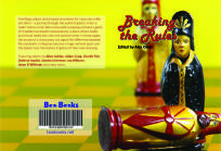 Breaking the Rules, a short story anthology edited by Alex Davis, is replete with such unlikely scenarios convincingly portrayed on the page. Published by Derby-based (very) small press Boo Books, this collection of thirteen stories buzzes with quirky creativity and eloquent prose. Unlike the editor, I’m not a particular fan of games, but I found myself entertained by the stories and in awe of the depth and breadth of creativity on show.  Carrot Ranch Communications is one of the great new blogs I discovered on the podium of Norah Colvin’s Liebster nominees. Here, along with buckaroo-tinged insights into the writing process, Charli Mills poses a weekly flash fiction challenge. Now, I thought I’d cracked the art of the short short, but my shortest story to date is four times the length of the 99 words set by Charli, practically a saga in comparison. Each week I checked the writing prompt and each week I let it go by, while admiring the efforts of others who managed to shoehorn a proper narrative into under 100 words. Maybe it was things winding down for Easter, maybe it was the theme of the challenge, but this week I decided to plunge in. But boy, was it hard! Much as I relish pruning back redundant words, this was like growing bonsai. But I persevered in the knowledge that limits can be liberating for writers, and Charli’s introduction had already drawn me in. She writes about how a glimpse of the world can spark a memory, and that memory can lead us towards a choice of creative paths. One leads to memoir, another to fiction: why someone might follow one route rather than the other to tell their story is something I’ve been pondering lately, as I’m looking forward to hosting a post from a memoirist here later this month. Charli’s 99-word challenge is to “write a biography for a character, alter-ego or you”. Well, I struggle enough with the bios editors request to accompany my short story publications, so you can guess which way I was going to go. And I thought it would be useful to tighten up my thinking about a character I’m musing on. So it’s over to Bernie, in her ninety-nine words: Winning the TV quiz show, Family Challenge, assured me a rosy future. My encyclopaedic knowledge would fuel my teaching career. I hadn’t bargained for a pregnancy midway through the training. When I surrendered my baby for adoption, I lost my sense of purpose too. Can’t complain, though. I work in a school, albeit in admin. I’m extremely popular on quiz nights down the pub. But, if people ask if I have children, I don’t know what to say. Everything’s changing again, as Jason has made contact. Given he’s about to become a father, can I call myself Grandma now? After reading some of the beautifully poetic contributions already up on the site, I think I might have fallen into the trap of prioritising information over style. Clearly, more practice is in order, but at least I’m getting to know Bernie a little better. 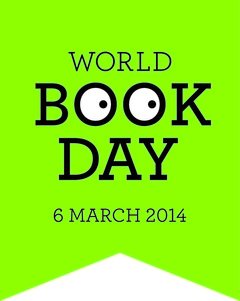 Among the myriad bookie happenings today, Chuffed Buff Books is giving away e-book versions of the anthology You, Me and a Bit of We which includes my short story A House for the Wazungu. If you’ve been following my posts on pitching, writing in the second person plural and the ‘you’ narrator, all of which featured stories from this collection, but weren’t quite inspired enough to get your plastic out and order a copy, now’s your chance! Of course I’m biased, but I think you’ll find it worth the effort. Here are the links: http://www.amazon.com/dp/B00G2BJON0 https://www.amazon.co.uk/dp/B00G2BJON0 and happy reading! I think the free offer extends into 7 March to accommodate different time zones so, if you’re interested, I do hope you manage to pick this up on time. Comments on the collection or what you’re doing for World Book Day are welcome and I’ll be back tomorrow with a longer post in readiness for International Women’s Day. 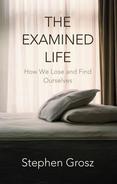 Published at the beginning of 2013, The Examined Life by Stephen Grosz is a gem of a book about psychoanalysis. Heavy with insight into the human condition while light on the jargon, it’s a most-read for any thoughtful individual, but I’m here to argue its particular value for readers and writers of fiction. If you like stories, I think you’ll be interested in these, and if you’re engaged in producing your own fiction, there’s as much to learn from these tales from the therapist’s couch as from any creative writing textbook. Here are 7 reasons why: 1. It’s unashamedly upbeat about the power of stories. Many psychoanalytic case studies read like stories, but these are especially exquisite. Beautiful prose, tightly structured, these are moral stories without being moralistic, gentle fables in the manner of Aesop and Kipling that leave us pondering the big questions of how to live. Alongside the stories from the consulting room, there’s an examination of Dickens’ A Christmas Carol and Melville’s Bartleby the Scrivener, and ordinary incidents from the author’s life. Without being heavy handed, he leaves us in no doubt as to the centrality of storytelling, that without our stories we are diminished: [O]ur childhoods leave us in stories … we never found a way to voice, because no-one helped us find the words. When we cannot find a way of telling our story, our story tells us – we dream of these stories, we develop symptoms, or we find ourselves acting in ways we don’t understand. (p10) 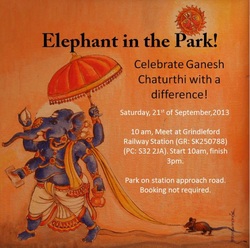 Are you sitting comfortably? Then I’ll begin my story of how I helped bring an Indian elephant into the English countryside and learnt something about storytelling in the process. Once upon a time Chamu told me about a guided walk she was planning in the Peak District. The aim was to use story to promote diversity within the national park and the walk would be integrated with the local celebrations for birthday of the Hindu god, Ganesh. Well, I thought, what could be better than walking and storytelling? I jumped at the chance to help out. Although I knew a little about the elephant-headed god from my travels in India many moons ago, these weren’t exactly stories I’d heard my mother’s knee. What if others were more familiar with the story than I was? Would I be able to engage people? What if I forgot my lines? Of course, I needn’t have worried. Thanks to Chamu’s support and a lovely group of tolerant walkers, I had a fabulous time telling my two stories, as you’ll see from the pictures below, and from others on the Hindu Samaj website. The experience got me thinking about the differences between story writing and storytelling. Although I often read my fiction aloud to check for stumbling blocks, telling a story without a script to an audience is another matter altogether. As a reader and as a writer, I treat adverbs with suspicion and every adjective has to earn its keep. Yet the oral form has a baroque feel to it, bustling with verbal curlicues, never using one word when half a dozen will do. Repetition, cliches, It came to pass and In due course – I welcomed them as joyfully as I attempt to edit out each just and quite from the written form. It wasn’t the presence of two delightful children that made me spout such archaic and nursery-style phrases; they seemed appropriate for the story to flow. 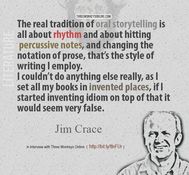 Relaxing into the role, I began to tell the story physically: modulating my voice; exaggerating my facial expressions; making judicious use of pauses. I don’t have an extroverted bone in my body, but I couldn’t help falling into the rhythms and performing. This will be no surprise to those familiar with reading bedtime stories, but to me it was a revelation, and I’m looking forward to doing it again at the end of August next year, only better. (If you watch the video below, you'll see there's lots of room for improvement.) If you'd like to come, the details will be on the Ranger walks calendar. If you've been paying attention, you might have noticed I've delivered all the posts I promised for October (gold stars all round). For next month I hope to bring you the fourth instalment in my series on fictional psychologists and psychotherapists; a look at internal obstacles to achieving one's personal and fictional goals inspired by my Q&A with Anthea Nicholson, as well as my recent post on character motivation; and why I'm raving about a small book of psychoanalytic case studies. I've also got posts in the pipeline on writers' routines; writing in the first person plural; old-age stereotypes; leaving home; another look at rhythm and my love affair with allotments. Hopefully there's something you'll want to come back for. If you're still wondering how the elephant god got his head, you can read a précis of the story here:
The video picks up the story halfway through, when Shiva has chopped off the head of Parvati's darling boy and is sending out his bodyguards to find a replacement. Or go here for a musical version of the story.
 I do love the way fiction can take me to unexpected places, not just as a reader, but as a writer, too. A couple of weeks ago, I was surprised to find inspiration for a short story in Margaret Thatcher's funeral. Now I'm hanging out with mediaeval nuns. I'm greatly enjoying the company, but I feel a terrible fraud, seeing as I'm totally unqualified as a historian. I think I've got an O level in history, but that would've been on the industrial revolution and, even as someone who believes my computer works by magic, it's hard to imagine the lives of people in a pre-mechanistic age. Except, I remind myself, in some parts of the world life is still like that, and I have had the privilege of passing through some such communities and catching a glimpse of what it's like to live without running water or electricity. So maybe I've got more to draw on than I thought. Nevertheless, not having previously delved into history any further back than my parents' childhoods, it is quite a different experience for me having to constantly check my facts (and, if it weren't for the internet, it would be far too arduous a task for one short story). For example, I knew not to have my nuns growing potatoes (although spuds were on my mind having just, belatedly, planted mine in the garden), but what other vegetables that we now take for granted would not be available in the Middle Ages? Fact checking was fairly straightforward, however, but what about the language? My dictionary does give a rough date for when various words were introduced, but how authentic did I have to be? How authentic was I capable of being, without immersing myself in contemporaneous documents for a couple of months? Where I stumbled most was with verbs as metaphor, or muscular verbs. I balked at using the word drive to indicate motivation or compulsion, because of its automatic association with motor transport for modern readers, even though I'm sure the word would have served equally well in the Middle Ages for driving cattle. I don't think this issue is unique to historical fiction, more an extreme case of something we need to think about in all our writing. Have we got the facts right, or near enough that they won't derail the story, and is the language consistent with the character and setting? Or perhaps I'm just trying to cover myself for straying into territory where I have no right to be? Interesting also how the blog leads me to the unexpected, not just the fun stuff I find on other people's, but what I choose to post. In other words, I hadn't expected to do this one, but the other two I mentioned last time (on identity as a writer and on blogging) need a little more polishing and there's bank holiday sunshine promised here in England, so I'll give them a bit more time to ripen. Meanwhile, whether or not you have delved into historical fiction, as a reader or a writer, please share your views.  A lot of my fiction is transformative: I'll take a disturbing event from my own life or what I see around me and, by re-authoring it, make it more manageable. It tends to be a retrospective process, the idea for the story coming long after the event has taken place. But something different has being happening with a short story I've been working on last week. I'd never have imagined I'd have written a story with a backdrop of Margaret Thatcher's funeral. I'd never have imagined I'd be following the events on the telly. Yet shortly after her death was announced, the seed of the story had been planted inside me. Then, in place of the rage that the government could fritter away £10 million of taxpayers' money for a not-quite state funeral when they are so mean about disability benefits, I'm calm and curious. Sometimes it's hard being a writer but it makes sense for surviving these topsy-turvy times. But that was the state of play as far as Thursday. You know that thing about too much research? Never my problem, generally, as I take a lazy/pragmatic attitude and do as little as I can get away with. I had enough for my story with what the funeral might mean to people who feel their lives been blighted by her political career. Yet even as an extremely passive researcher, I couldn't shut out the other things that were happening, other reactions and protests. So now I'm left wondering whether somehow I've got to fit that Ding Dong The Witch Is Dead song into my story. I won't really know until next week when all the pomp and protest has died down if my story has been killed or not. Don't you ever wish real life would just shut up and go away? My next post will probably be on author bios and the published novelist's itinerant lifestyle. Do come back -- I promise you the writing will be sharper than these photos.
 Once again I find myself urging another writer to publish his short stories, directing him to my website and the links to stories here. Afterwards I worry I might have come across as more hectoring than helpful (although I’m incubating a post exploring the notion that there may not be as wide a difference between the two as we like to think) and he’ll be disappointed at the dearth of information as to how to go about it. Time perhaps for the annethology guide to getting published? Counting up, when A House for the Wazungu and Peace-and-Quiet Pancake are released by their respective publishers, I’ll have thirty-seven short stories at large in the world. Perhaps I’d have had more credibility if I’d hung on for a nice round forty, but I was inspired by a recent post from Rowena reminding me of the beauty of primes, so I’m resolved to celebrate their quirkiness when I remember from now on. Either way, it’s more than the two dozen I’d had in mind, suggesting I might know something (if only in the sense of more than nothing) about short story publication for the nonprofessional. So, without more ado, here’s how: Until last week, I hadn’t written any fiction for over two months. I’d entertained passing thoughts about revisions I should make to my novel and a few fleeting ideas for short stories, but nothing sufficiently inspiring for me to do any actual writing. I don’t believe in writer’s block (that’s for another post), although I hadn’t planned on so long a break. Besides, I was sending out stories (see next post) and writing the blog, buzzing with ideas and words, and fascinated by how absorbing I found it (another post on that coming soon, too), but it wasn’t fiction – or not quite. Anyway, last week a story finally got written and I realised two things I get from fiction that I don’t get other kinds of creative writing. The first is how the characters lend a hand in the crafting of the story (but I think I’ve got enough to say about that for another post) and the second is the sheer alleluia joy of language.  I try to write well even if it’s just a note to the milkman (and no, this isn’t poetic licence, we still have our milk delivered even if it is twice the price, and I’ll occasionally write notes to the man who brings it) and I draft and check my blog posts (you think this is bad you should see the originals) but it’s in fiction where I want the language to fly. I’m no poet by any means, but when I changed Dad held his mug to Dad cradled his mug in my new story, even if I might have changed it back again, I knew I’d come home. Muscular verbs bring vigour to our writing without recourse to those pesky adverbs. They're appealingly economical, enhancing the description without upping the word count. Choosing the right one can be a load of fun. But we need to be careful not to get carried away. Too much muscle and it gets exhausting. Sometimes I really need to just walk into a room and curb my desire to amble, bounce, careen, dance, edge, flounce, gambol, hobble, etc. Actually, when it gets to that stage there’s probably no need to show the transition into the room at all. Since I’m back into writing stories, next up is a post on how to publish them. In the meantime … How about you? Do you get turned on by muscular verbs? Which are your favourites and are there any you overuse? Or is there something else about fiction writing that other forms of writing don’t quite touch? |
entertaining fiction about identity, mental health and social justice
Annecdotal is where real life brushes up against the fictional.
Annecdotist is the blogging persona of Anne Goodwin:
reader, writer, slug-slayer, tramper of moors, recovering psychologist, struggling soprano, author of three fiction books. LATEST POSTS HERE
I don't post to a schedule, but average around ten reviews a month (see here for an alphabetical list), some linked to a weekly flash fiction, plus posts on my WIPs and published books. Your comments are welcome any time any where. Get new posts direct to your inbox ...
or click here …
Popular posts
Categories/Tags
All
Archives
March 2024
BLOGGING COMMUNITIES
|
||||||||||||||||||||
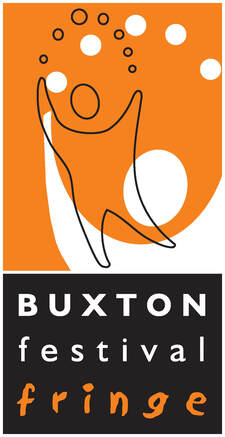
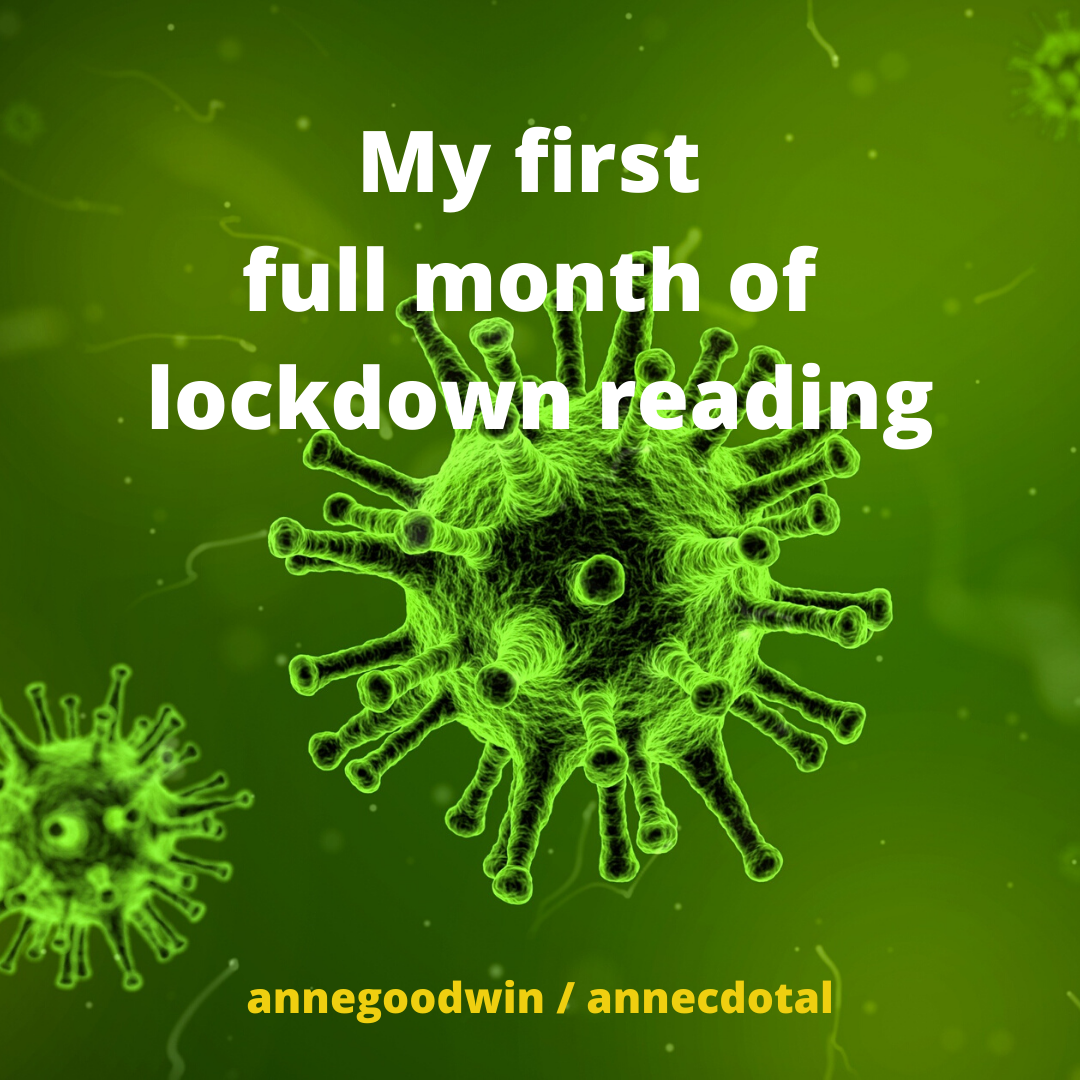
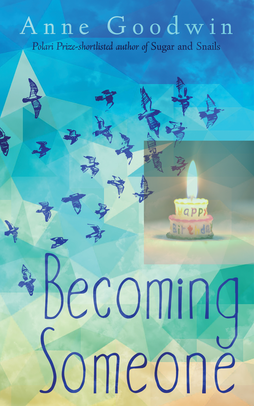
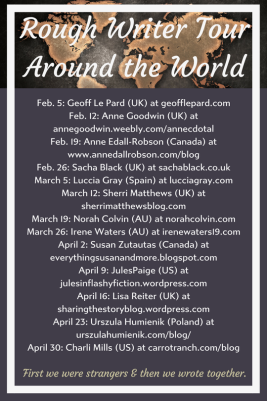
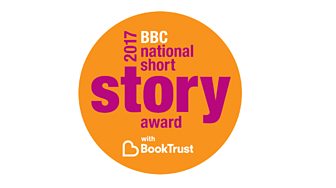
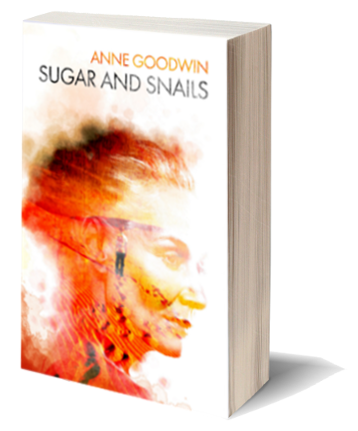

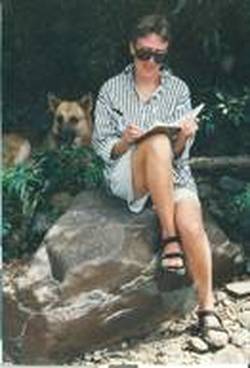

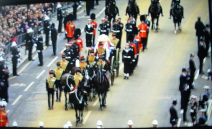





















 RSS Feed
RSS Feed





















